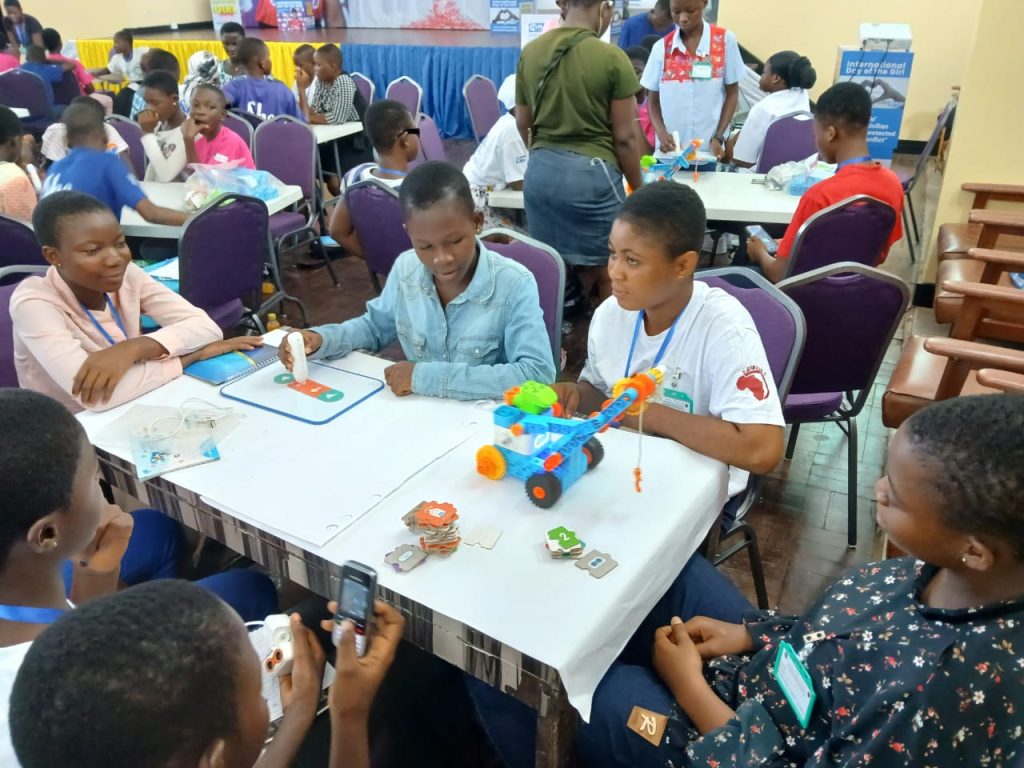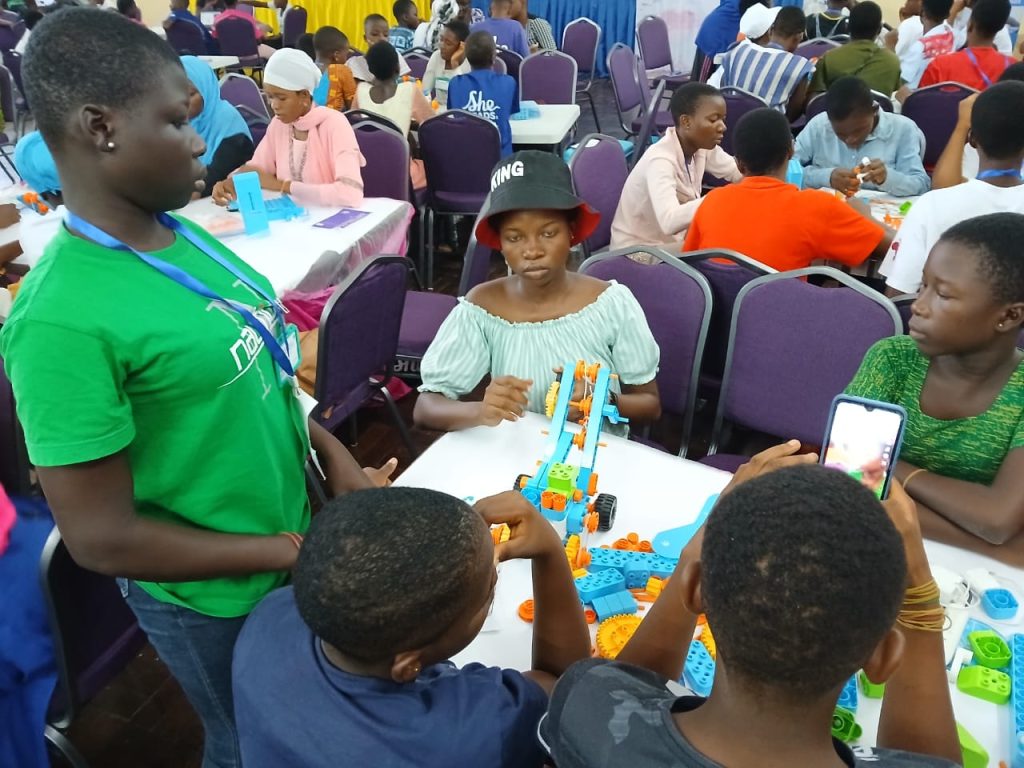By Eunice Hilda A. Mensah
Accra, Oct. 15, GNA – Plan International Ghana, in partnership with its allies, has trained 118 girls from Senior and Junior High Schools across various regions of the country in robotics, coding, and programming.
The training was part of Plan International Ghana’s “She Leads” project and took place during a five-day boot camp in Accra, which focused on leadership, Science, Technology, Engineering, and Mathematics (STEM), as well as courtesy behaviours, among other skills.
The initiative also served to commemorate this year’s UN International Day for the Girl Child.
The participants were mobilized from the North East, Upper West, Central, Ashanti, Volta, and Greater Accra regions.
Ms. Joyce Obenewaa Darko, the Project Manager for the She Leads Project, told the Ghana News Agency in an interview that their initiative, themed “Inspiring Girls in STEM Leadership,” aims to ignite girls’ interest in STEM fields.
“Over the years, we have noticed girls are running away from STEM-related courses into the arts so we want to whip up their interest, and by giving them hands-on experiences, we believe it would motivate them to start something when they go to their respective schools, knowing the possible areas they could excel in STEM,” she said.

The training also offered a platform for influential women in STEM fields to mentor the girls and inform them about online resources available for their studies, helping to support their learning after the boot camp.
“So far, we have had a lot of positive responses from them. When they came, we asked them what they wanted to be in future, and one says I wanted to be a teacher, and the other says I wanted to be a nurse. But today we are speaking to them, and some say they want to be Engineers, others pilots and the rest.
“They are beginning to change their mind-set about what they are capable of doing when it comes to STEM,” Ms Darko said.
Ms Lydia Owusua Agyakwa, Country Network Coordinator for the She Leads Project at Defence for Children, noted that the boot camp also allowed the girls to learn best practices from their peers in other regions.
“Most of the girls have the notion that STEM is for boys and not girls, so I am happy their minds are being transformed to embrace the STEM field.
“Last year, participating schools testified that their students had a positive change in attitude exhibiting significant knowledge acquired.
“I am optimistic that this year’s would also enable the girls to share their knowledge and skills acquired to boost the confidence of their peers to have a change of attitude where necessary,” she added.
Gabriella Mensah, a final-year student at Mfantsiman Girls Senior High School and a participant in the boot camp, shared, “From this boot camp, I have learned how to build my confidence and overcome shyness. “
“In the STEM sessions, I have also learned how to connect electrical tools to create robots and do some programming.
“From the skills acquired, I aspire to become a mechanical engineer, and I will learn harder to achieve my dreams,” she said.
Deborah Amenuvoh, a 13-year-old final-year student at New Ayoma M/A Senior High School in the Jasikan District of the Oti Region, stated that the platform has helped her build confidence, would enable her to “be a role model for others to see and learn from me.”
“I have learned how to be a star for people in my community to learn some positive conduct from me.
“Such conduct includes keeping my self-clean all the time, focusing on my books, and achieving my aim,” she said.

Ms Amenuvoh emphasised, “I am going to educate my friends on how to be role models and lead exemplary lives for others to look up to and emulate. I will teach them how to walk, speak, and eat in public, and I’m going to change my lifestyle completely.”
Plan International Ghana organised the camp in collaboration with its implementing partners and the She Leads Consortium, which includes Defence for Children and FEMNET, as well as civil society organizations such as Songtaba in the Upper West Region.
Other partners include the Erudite Women Empowerment Foundation and Rights and Responsibilities Initiatives in the Ashanti Region, Hope for Future Generations in the Volta Region, and the Women Aspire Network in the Central Region.
GNA